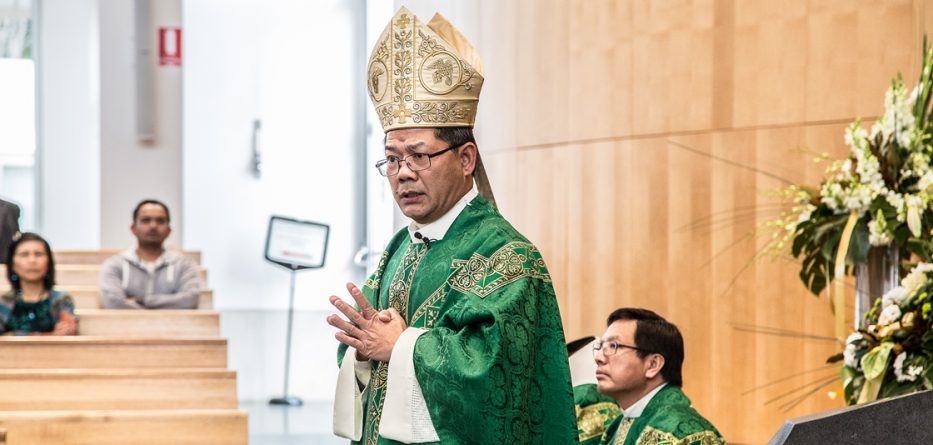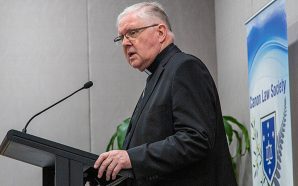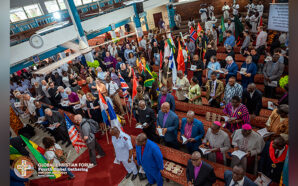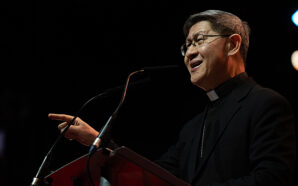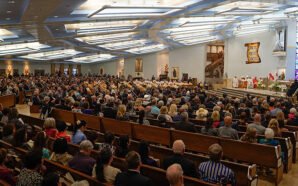Most Reverend Vincent Long Van Nguyen OFM Conv DD STL, Bishop of Parramatta
Homily for the 4th Sunday in Ordinary Time in Year C 2019 at St Paul the Apostle Parish, Winston Hills
Readings: Jer 1:4-5, 17-19; 1Cor 12:31-13:13; Luke 4:21-30
2 February 2019
Jesus’s prophetic message upsets the status quo
Dear friends,
I have just returned from the World Youth Day Pilgrimage with 171 young pilgrims from our diocese. I am proud to say that ours was one of the most visible, cohesive, well-supported, joy-filled and spiritually attuned groups. We experienced many moments of grace, from the shrine of Our Lady of Guadalupe in Mexico to the final Mass with Pope Francis in Panama. We were in awe of the rich and diverse colours of the universal Catholic family.
In Latin America where there is poverty, conflict and violence, we heard the Holy Father’s call for the Church to be deeply engaged with the poor, to touch the wounds of the suffering and to be at their service. I’d like to thank you, the people at home, who supported us the pilgrims and accompanied us with your prayers.
Today, we also heard the message of hope for the world through this Sunday’s liturgy. The Word of God challenges us to go beyond what is familiar, secure and comfortable in order to reach out to those on the margins. In the name and the example of Jesus, we are inspired to fulfil our mission of sharing God’s love with our brothers and sisters in need.
In the first reading, we hear the call of Jeremiah who is known as “the weeping prophet”. He was asked to deliver a hard message to Israel at the time where there was much chaos and uncertainty. He was given the assurance of God’s choice and accompaniment of his mission: “Before I formed you in the womb I knew you; before you came to birth I consecrated you and appointed you as prophet to the nations”.
He was to lament and condemn the corruption, moral decay, idolatry, shifting alliances and opportunism in Israel. Jeremiah was caught between a compelling word of God and those who rejected that word. In the end, he chose to be faithful to his mission in the face of opposition. He shows us what it means to swim against the tide and walk the long hard and unpopular road of fidelity.
Such prophetic courage and commitment are also demanded of the disciples as evident by the Gospel reading. Jesus – we are told – was rejected by his own people, who had expected a different kind of Messiah. A carpenter’s son from a humble stock he didn’t fit into their messianic model. Furthermore, he dared to challenge their privileged status and to suggest that God was in favour of outsiders like the foreign widow and the Syrian leper.
In fact, Jesus would be ultimately rejected, condemned and crucified for his persistent challenge to the status quo and insistence on God’s preferential option for the poor, the outcast and the excluded.
Last Sunday’s Gospel, we heard in no uncertain terms that Jesus’s mission would be directed to those on the margins. “The spirit of God has anointed me. He sent me to bring the Good News to the poor, liberty to captives, sight to the blind and the Year of favour for all”.
This is why we hear stories of Jesus befriending and socialising with the tax collectors and sinners; we see him challenging ingrained attitudes of prejudice and exclusion; we even see him breaking social taboos and expanding the boundaries of human love, acceptance and friendship.
Sisters and brothers,
As his disciples, we are also commissioned to extend the ministry of Jesus and to enhance the lives of others in its totality. Wherever Jesus went, he engaged people and their concerns; he championed their cause; he brought about total healing; he made a difference to their lives and relationships.
It was not simply the blind could see, the deaf could hear and the lame could walk. It was also the restoration of dignity to the downtrodden; to the marginalised, inclusion; to the despised, honour; to the excluded, unconditional acceptance; to the sinner, complete forgiveness. In the last analysis, we Christians are judged for our genuine discipleship in terms of whether or not we have done what Jesus commanded us to do. It is on the basis of what you did or did not do to the least of our brothers and sisters.
We Christians are meant to be counter-cultural insofar as we dare to name and critique the anti-Gospel attitudes and practices around us. We do so not out of arrogance and loftiness but out of the authentic convergence to the mind and heart of Christ. The challenge that Jeremiah and Jesus face is to act with moral courage out of concern for justice and integrity. It is bound up with the call to stand on the side of the powerless and the vulnerable.
Christian discipleship demands our moral courage, integrity and fidelity. We are to participate in the divine project of reconciling and restoring all things in Christ. We do so by our willingness to confront situations of injustice or conflict without compromising the Gospel and without counting the cost to oneself.
It is our commitment to the truth of the Gospel even at the hazard of incurring the ridicule of others. May we have the courage to follow the example of Christ and live fully the demands of Christian discipleship.
Amen.




